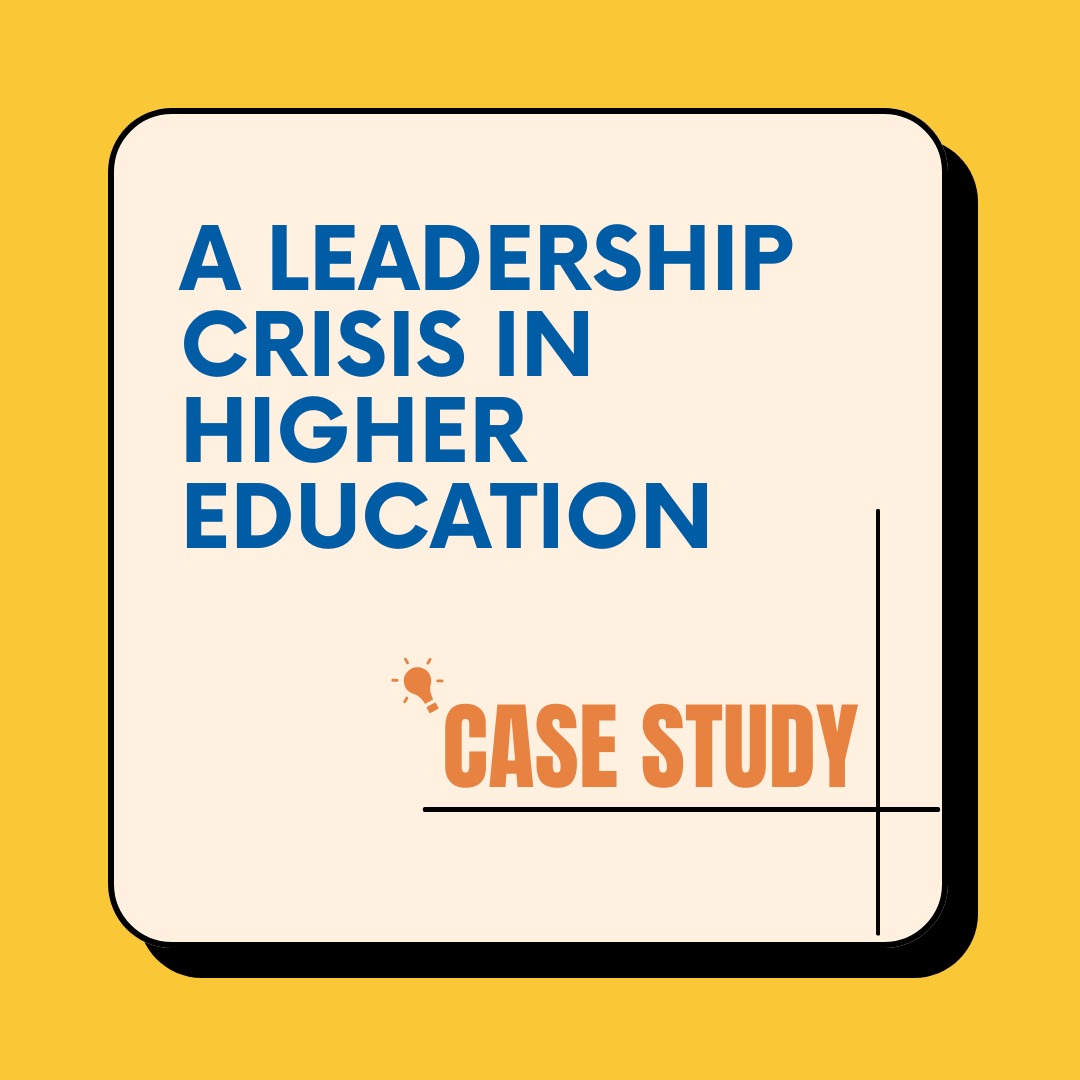
 Case Study
Case StudyA LEADERSHIP CRISIS IN HIGHER EDUCATION
Abstract: In March 2018, Kalidas Chattopadhyay, the director of a premier business school, applied to the All-India Body of Higher Education (AIBHE) for an extension of the approval of the existing 180 seats and an increase of 60 seats in the Post Graduate Diploma in Management (PGDM) course. Though no document authorizing an increase in the number of seats was received, the admission staff, with the Director’s agreement, provided letters of acceptance to 240 candidates in the expectation that the AIBHE would approve the request quickly. As a result, apart from the existing 180 seats, 54 additional seats were filled up. However, on June 15, 2018, the AIBHE rejected the request to extend the number of seats in the PGDM course.
On June 22, 2018, Kalidas Chattopadhyay discussed the situation with the senior management and suggested two damage control measures: Suing the AIBHE for failing to grant the 60-seat extension on time and simultaneously giving admission to an additional 54 students in the course. A renowned lawyer was hired, and the trial dragged on for two years, with the 54 affected students finishing their two-year PGDM course in 2020 despite the non-approval of 60 seats.
The court ruled against the institution and a penalty of INR 450.36 million was imposed on the business school—an amount six times that charged to the 54 students.
Learning Objectives
This case has been designed to illustrate to students the potential financial repercussions that can arise from unethical decision-making within a realistic context. It also highlights the significance of top management role, leadership style, ethics, and employee selection and role as critical components for an organization's success. The case can be conducted as a role play in the classroom, allowing students to assume the role of Chattopadhyay and meticulously analyse the events that transpired to assess the consequences of unethical choices.
- Students will be encouraged to consider the broader implications of these immoral decisions on various stakeholders involved. Through this examination, it is anticipated that students will gain insights into ethical theory by connecting it to the specific circumstances presented in the case. The primary objectives of this exercise are as follows:
- Engage in discussions and debates regarding the ethical implications of issuing admission letters to 60 students without prior approval from the AIBHE.
- Explore the critical importance of ethical decision-making for leaders in organizational contexts.
- Analyse Chattopadhyay's leadership style and its impact on the situation at hand.
-
 Pub Date:11 Oct 2024
Pub Date:11 Oct 2024 -
 Source:ICRC
Source:ICRC -
 Discipline:Human Resource Management,Business Ethics
Discipline:Human Resource Management,Business Ethics -
 Product#:2982
Product#:2982 -
 Keywords:Ethics,Leadership, Stakeholders, Decision Making, and Leadership Styles.
Keywords:Ethics,Leadership, Stakeholders, Decision Making, and Leadership Styles. -
 Length:Pdf : 7 page(s) ,
Length:Pdf : 7 page(s) ,
 Case Study
Case Study